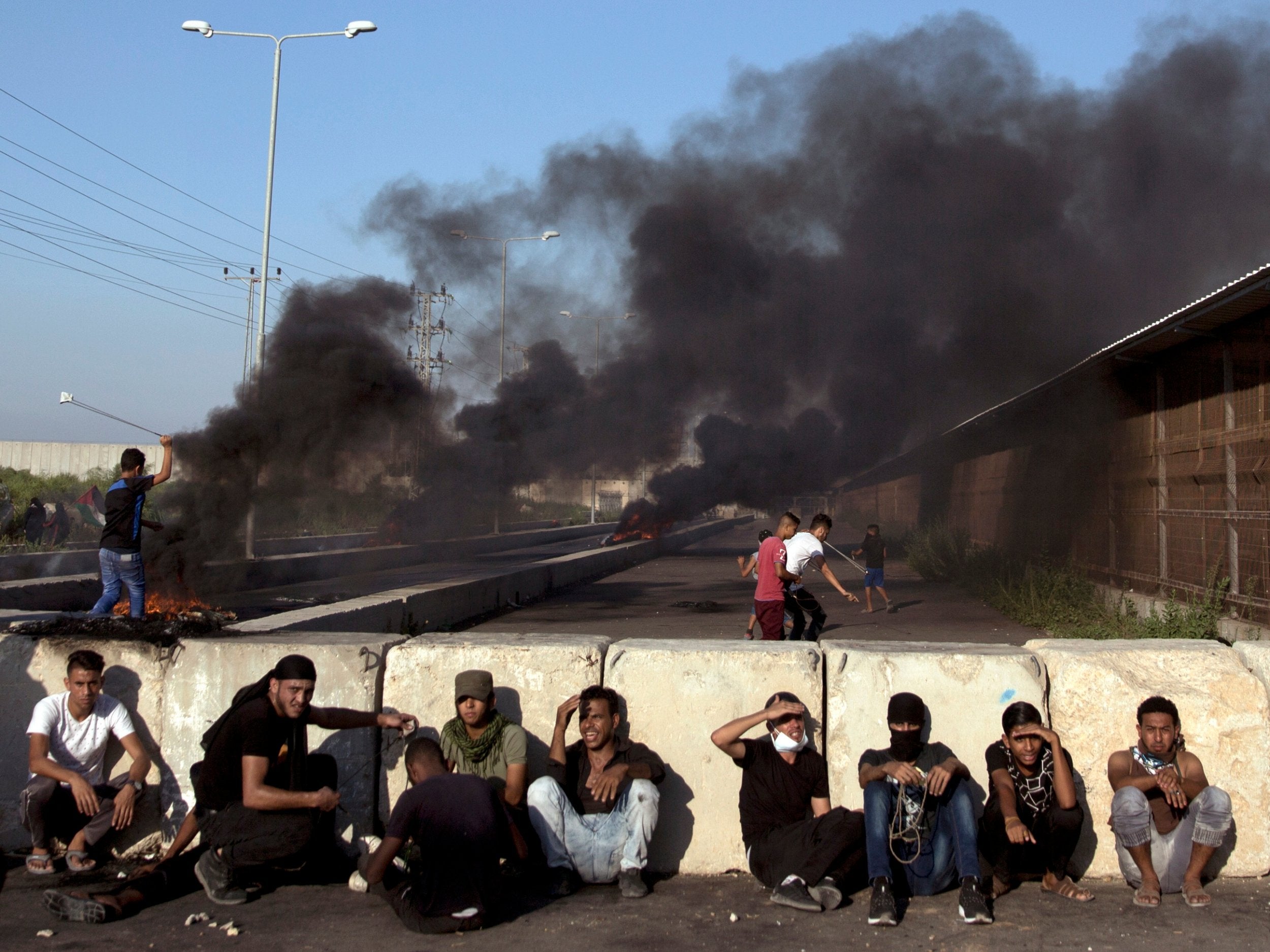Trump promises Middle East peace plan within four months despite Palestinian backlash
US president said it was his "dream" to see peace in the Middle East before the end of his first term in office, but Palestinian leaders dismissed his promises as too vague
Your support helps us to tell the story
From reproductive rights to climate change to Big Tech, The Independent is on the ground when the story is developing. Whether it's investigating the financials of Elon Musk's pro-Trump PAC or producing our latest documentary, 'The A Word', which shines a light on the American women fighting for reproductive rights, we know how important it is to parse out the facts from the messaging.
At such a critical moment in US history, we need reporters on the ground. Your donation allows us to keep sending journalists to speak to both sides of the story.
The Independent is trusted by Americans across the entire political spectrum. And unlike many other quality news outlets, we choose not to lock Americans out of our reporting and analysis with paywalls. We believe quality journalism should be available to everyone, paid for by those who can afford it.
Your support makes all the difference.President Donald Trump has vowed to deliver a “fair” Middle East peace plan within the next four months, after publicly endorsing a two-state solution to the Israeli-Palestinian conflict for the first time.
Mr Trump said it was his “dream” to see a peaceful end to the 70-year conflict, and pledged to present a deal within two to four months.
Israeli-Palestinian peace talks have been suspended since 2014 and efforts to revive them have proved unsuccessful with successive US administrations failing to broker any definitive long-term treaty.
Speaking on the sidelines of the United Nations General Assembly in New York, Mr Trump appeared unperturbed, and claimed “a lot of progress had been made”.
The US leader, who held recent meetings with Israeli prime minister Benjamin Netanyahu, added he backed a two-state solution, marking the first time he has publicly mentioned it.
“I would say, over the next two to three to four months,” Mr Trump said on Wednesday, referring to his prospective timetable for presenting a plan.
“I really believe something will happen. It is a dream of mine to be able to get that done prior to the end of my first term [in 2021],” he added.
The president later confirmed his son-in-law Jared Kushner, who is tasked with brokering a permanent settlement, was going to be “very fair with the Palestinians”.
“I think the two-state is more likely,” he added.
Mr Netanyahu has repeatedly insisted any future Palestinian nation must be demilitarised and must recognise Israel as the state of the Jewish people, conditions Palestinians say prove he is not sincere about peacemaking.
On Wednesday, the right-wing Israeli leader thanked Mr Trump for his “extraordinary support”, but said his country must retain security control of land west of Jordan which includes the occupied West Bank.
“It is important to set what is inadmissible to us: Israel will not relinquish security control west of Jordan. This will not happen so long as I am prime minister and I think the Americans understand that,” said Netanyahu, according to Israeli newspaper Haaretz.
Mr Trump’s comments did little to reassure the Palestinian leadership, which has broken contact with Washington ever since the US recognised the disputed city of Jerusalem as Israel’s capital in December, and then relocated the US embassy there from Tel Aviv.
Mr Trump further worsened ties when he cut more than $500 million in Palestinian aid, including slashing all funding to the United Nations’ Palestinian refugee programme.
Palestinian foreign affairs minister, Riyad al-Maliki, said Mr Trump’s comments were too vague to represent any real progress.
He said the American president needed to state clearly a two-state solution would include a return to borders that preceded the 1967 Six-Day War, and that east Jerusalem – which the Palestinians claim as their capital – is occupied, rather than constituting a part of Israel.
“These are important statements that President Trump has to say in order just to convince anyone that he is committed to real peace in our region,” Mr Maliki added.

Tensions between the Israelis and Palestinians reached a fresh breaking point in the summer over months of protests by Gaza residents along its border fence.
Nearly 190 Palestinians have been killed by Israeli fire since the marches erupted, on 30 March. One Israeli soldier has been killed during that time. Israel has defended its use of force, saying the rallies were not peaceful and protesters repeatedly attacked the border fence, including flying incendiary balloons and kites into Israel.
Egypt has stepped in to broker several ceasefires after multiple instances of cross border fire, but none have properly held.
There will not be a Palestinian state, which would be a disaster for Israel
Mr Netanyahu also held rare face-to face meetings with Egyptian President Abdel-Fattah el-Sisi on the sidelines of the UN assmebly. Mr Sisi’s office said they reviewed ways of revising the peace process, with the ultimate goal being a two-state solution.
But Mr Netanyahu is facing mounting pressure back home.
Naftali Bennett, the prime minister’s rival and the country’s powerful education minister, said a Palestinian state was out of the question.
“The president of the US is a true friend of Israel. However, it must be emphasised that… there will not be a Palestinian state. That would be a disaster for Israel,” he said.

Join our commenting forum
Join thought-provoking conversations, follow other Independent readers and see their replies
Comments